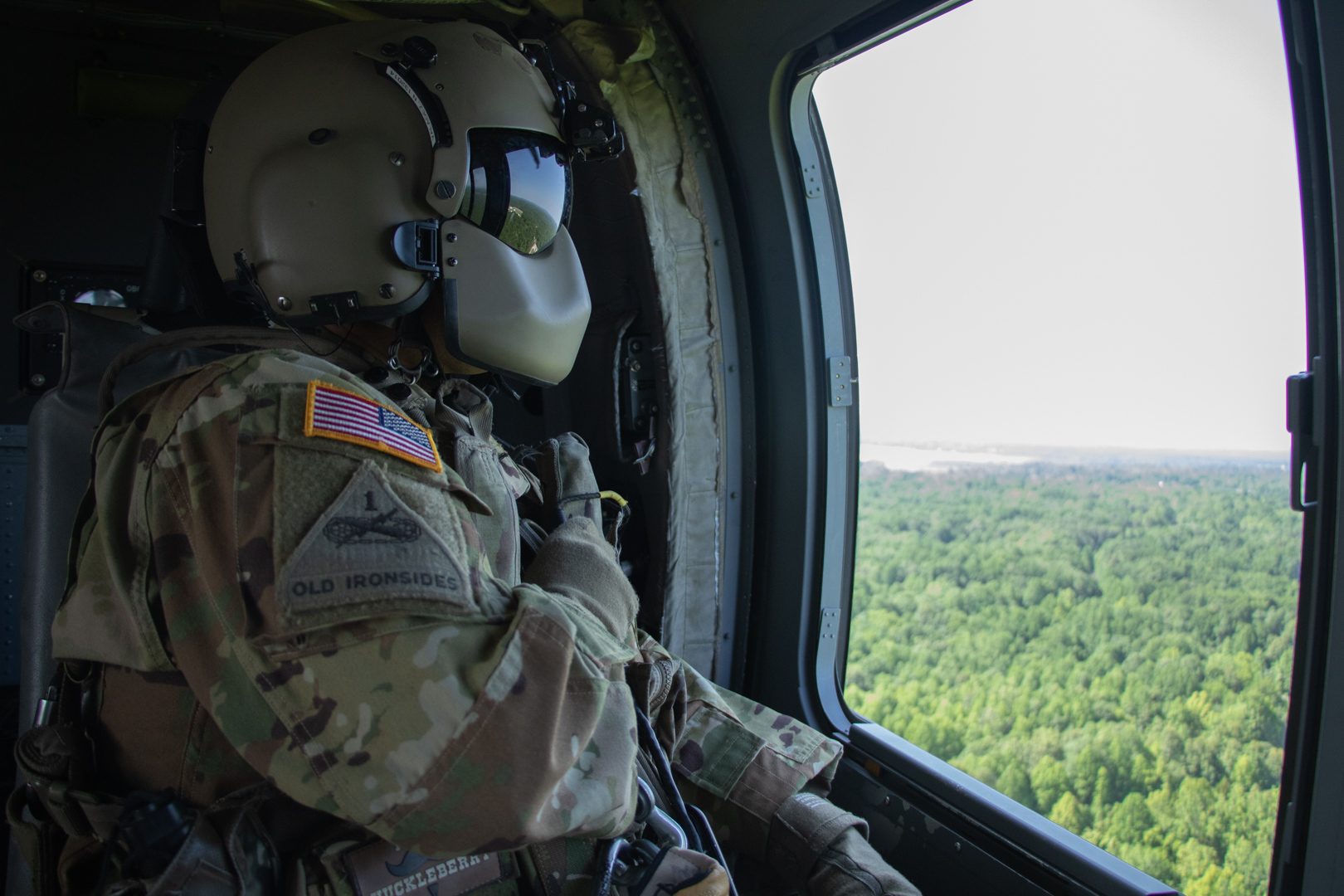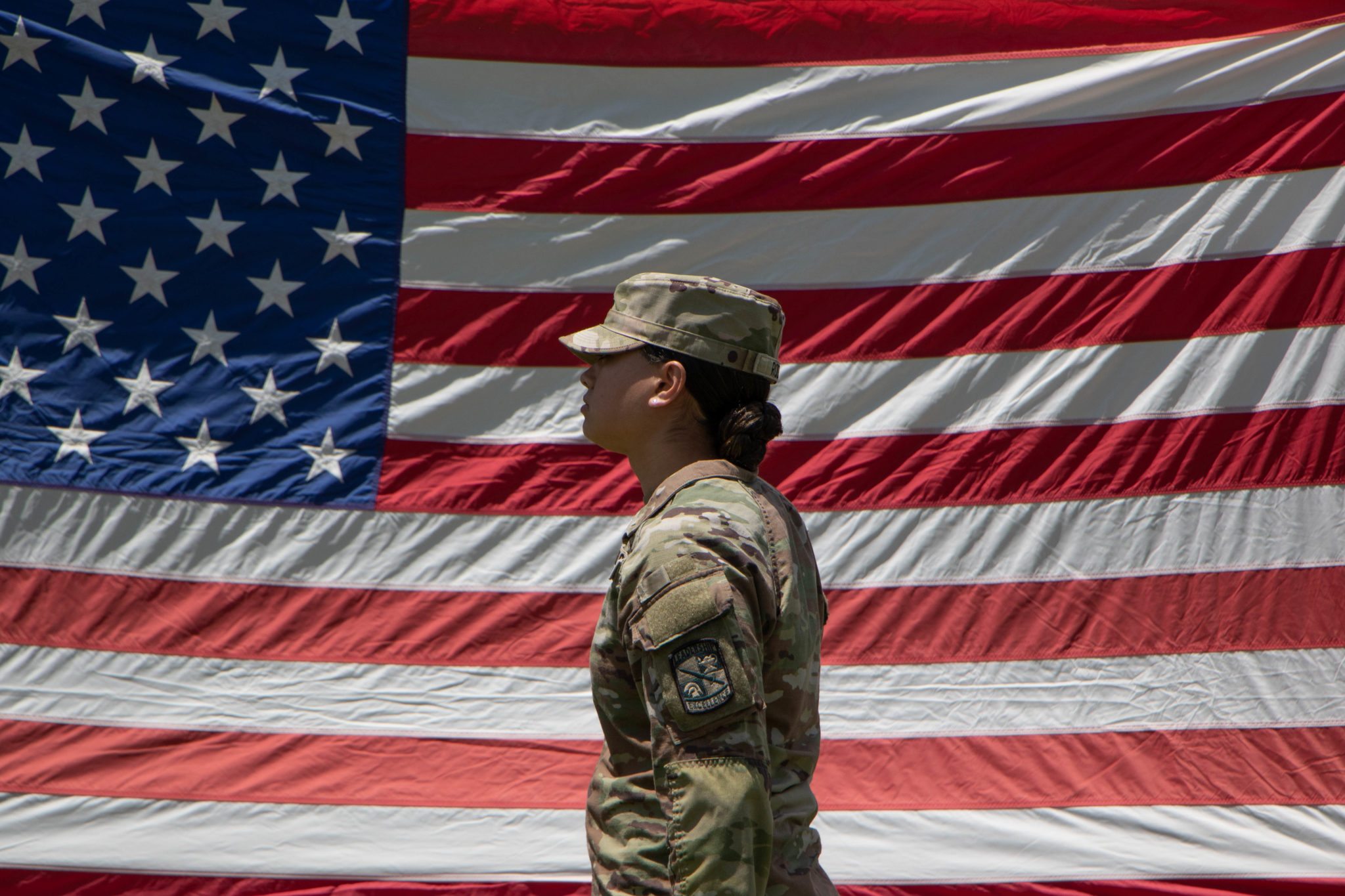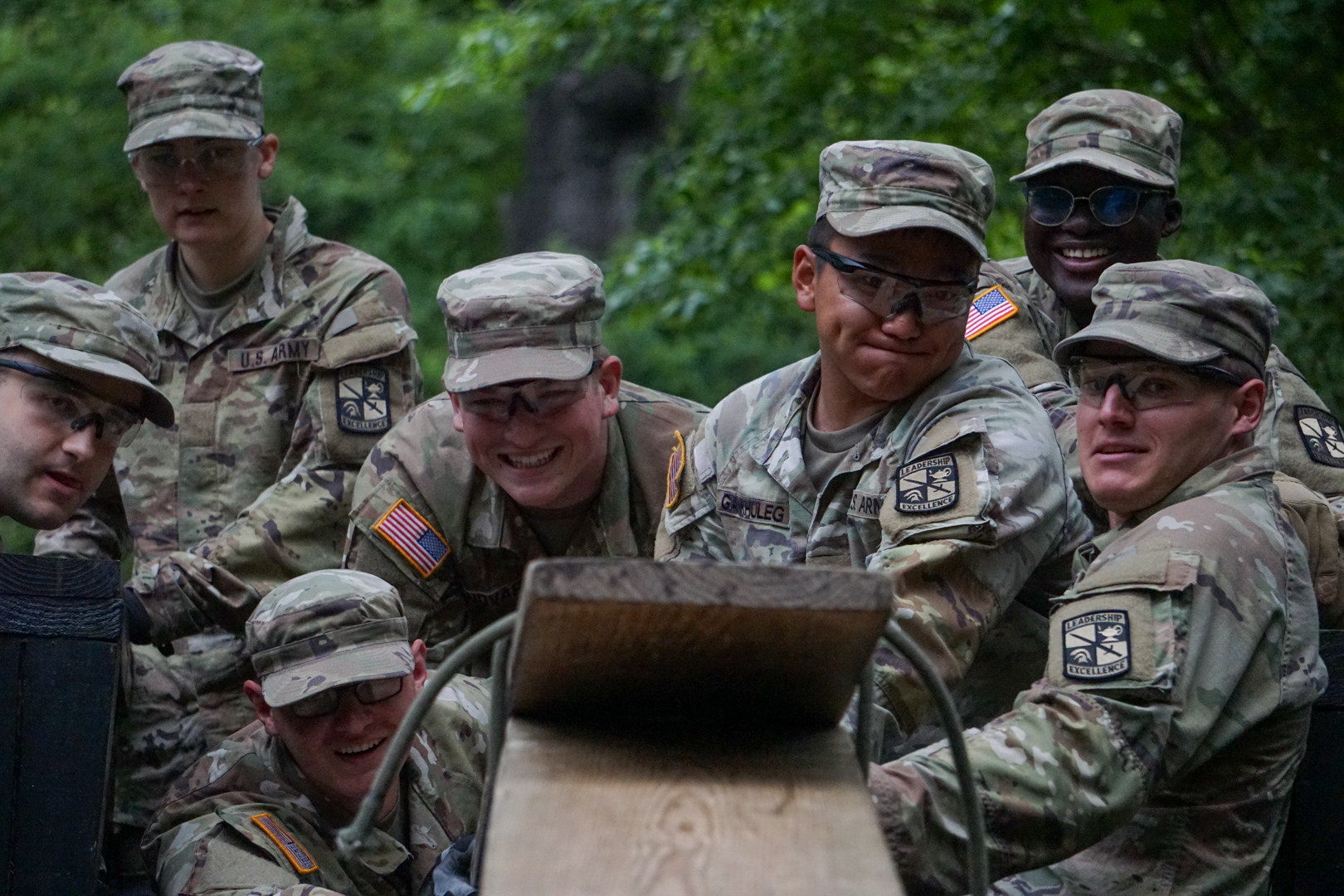2nd Regiment Cadets tested for their basic rifle marksmanship qualification as part of their Cadet Summer Training at Fort Knox, Ky., June 12, 2022.
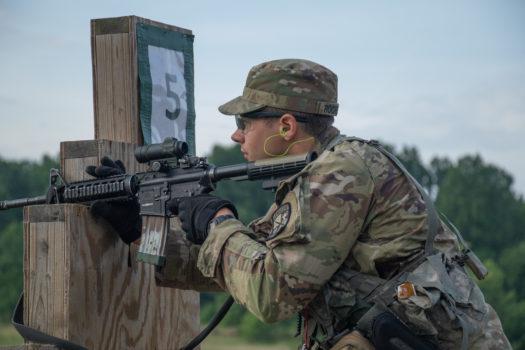
Master Sgt. Benjamin Chumley with the 7th Brigade works at Middle Tennessee State University and was one of the Cadre at the qualification. Chumley said scoring is based on accuracy and how many hits a Cadet gets with 40 rounds of ammunition.
“23 out of 40 is a pass, but they are broken down into marksmen, sharpshooters and expert,” Chumley said.
Chumley said 23 to 30 is a marksman, 30 to 36 is a sharpshooter and 36 to 40 is an expert.
Some Cadets are fairly new to working with weapons, so the training helped them prepare.
Cadet Kristopher Bryan attends school at California State University, Fullerton. Bryan said he could not qualify in the fast paced qualifications the previous day, but he felt good about his chances in today’s qualification.
“Hopefully, it will look pretty good,” Bryan said. “I’m trying to get that RECONDO [badge] so 30 out of 40. It’s a little tough, but I think I can do it.”
Bryan said his battalion had only really shot once before, but after practicing he felt more prepared.
“So, I was kind of scared going in, but I just went through all the processes of shooting the targets multiple times and I think I’m ready
Bryan said he was nervous when he was preparing to come to CST, he thought it was going to be rough. He was pleasantly surprised, he said CST has been better than he expected.
“I’ve met a lot of good people who really made it a lot better,” Bryan said. “My Cadre is great, so I have nothing to complain about.”
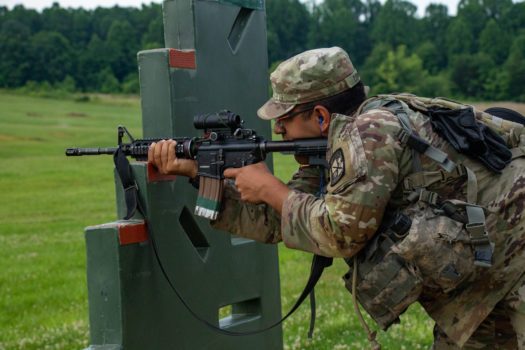
Other Cadets are familiar and comfortable working with M4 carbines.
Cadet Matthew Blacksmith, University of Houston, enlisted in the National Guard when he was 17, so he was already familiar with rifle shooting. Blacksmith decided to join ROTC after six years in the National Guard. He said while he was in the National Guard, he did a lot of marksmanship, weapons cleaning, land navigation and night operations.
“My unit specifically was a reconnaissance unit, so we mainly focused on recon, like moving through the woods, remaining uncompromised and just moving forward,” Blacksmith said. “You know, getting eyes on the enemy, getting intel sent up and then withdrawing.”
Blacksmith said multiple family members have served in the military, which was part of what made him decide to join the National Guard and later to become an officer.
“On my mother’s side, it was my mom’s dad, so he was a captain in the Air Force and then her brothers were both in the Air Force,” Blacksmith said. “My mom’s side is all Air Force and then my dad’s side is all Army so it was either Army or Air Force.”
Blacksmith said he enjoyed his time in the National Guard and it has given him a lot of great traits.
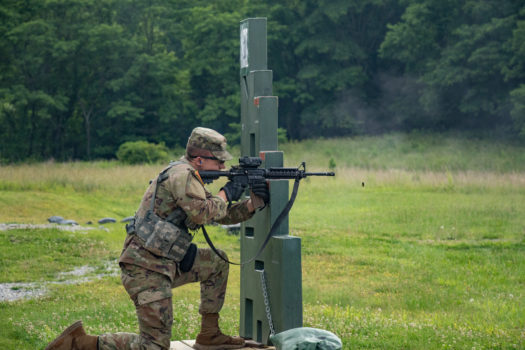
“Going through the enlisted side has definitely helped me understand their experiences and it’s prepped me to be a better officer,” Blacksmith said. “I know how it feels to be a private or how it feels to be, you know, that brand new kid at a unit, who has no idea what’s going on.”
Blacksmith said once he has been commissioned his first choice of work would be in military intelligence.
Blacksmith said he thinks the military intelligence field would be interesting because it’s kind of like the wildcard of branches.
“It ranges from everything from like PSYOPS [psychological operations] all the way over to like Special Operations Command and things like that, which I just find super interesting,” Blacksmith said.
Blacksmith said so far CST has had ups and downs, but he has passed all of his necessary qualifications. He said he is excited for the Field Training Exercises (FTX) and the work his regiment will be doing in the field.
“All the stuff we’re doing, we’re qualifying to go to this FTX, so I know that’s where all the fun is going to be,” Blacksmith said.
Blacksmith said he has been learning a lot at CST from his fellow Cadets. Cadets do things in different ways, so here and there he can learn a new or better way of doing things.
“I mean, I think it’s probably one of my favorite parts is the culmination of everybody coming together for CST,” Blacksmith said. “Then us learning about each other’s different programs, how we all do things differently and then kind of like wargaming all these topics or all these SOPs to create a platoon standard operating procedures for us.”

